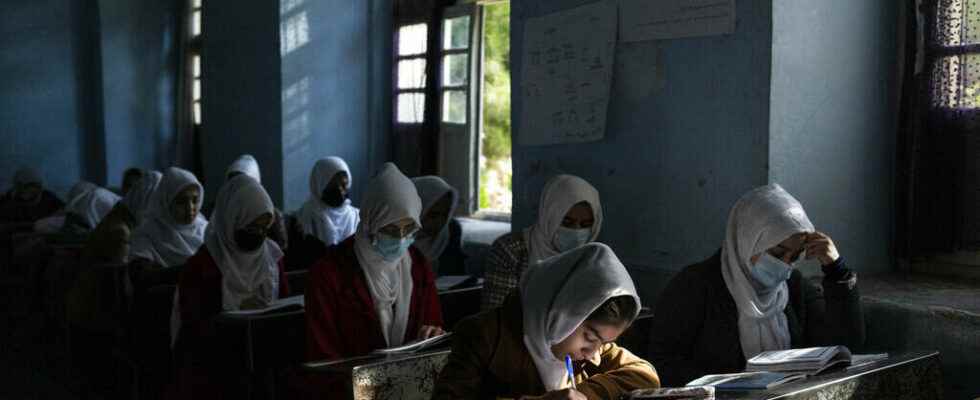The Taliban had promised on Monday March 21 that Afghan high school and college girls could resume their education on March 23, after having been deprived of it since religious fundamentalists took power last August. Turnaround and chaos this morning: the ministry announces that the start of the school year is postponed until later, without specifying when.
In front of colleges and high schools this morning, heartbreaking scenes… like the one to be found below, filmed by the Afghan television channel Tolonews.
Video: A schoolgirl says when she heard about the reopening of schools yesterday, she cried from happiness. Today, she cried after she and her female classmates were prevented from entering their school.#TOLOnews pic.twitter.com/8aib9kVtvX
—TOLOnews (@TOLOnews) March 23, 2022
A schoolgirl in uniform confides in the journalist: “ I was so happy last night to go back to school, happy to wear my uniform this morning, but when I got here they told us we didn’t have permission… “. The Taliban have broken their promise to reopen secondary schools to girls. The Ministry of Education has decided to postpone the start of the school year, but not before ” that a plan in accordance with Islamic law, Afghan traditions and culture be put in place… “.
A total disappointment
Bitter disappointment and disillusion in Afghanistan where dozens of young Afghan women rejected by their establishment protested in the streets of the capital, Kabul. Many young girls have made the crane foot in front of their establishment without much hope.
For Heather Barr, associate director of the organization Human Rights Watch interviewed by our correspondent in Islamabad, Sonia Ghezalithis turnaround is alarming: “ If the Taliban had kept their promise to reopen all secondary schools, it would have shown this would have been a strong sign that international pressure is working and that the Taliban are ready to compromise, including on women’s rights in order to obtain legitimacy. What is happening sends the opposite message. It shows that they do not have the will or the ability to make these changes and that they cling to their core doctrines which are deeply misogynistic. »
The Taliban also show their weakness: it’s as if they were afraid to make a clear decision on a controversial subject within their ranks, reacted researcher Ashley Jackson, co-director of the Center for the Study of Armed Groups in the Overseas Development Institute (ODI) which has conducted research on the Taliban and civilians living under their control in Afghanistan.
When the Taliban were in power in the country between 1996 and 2001, girls were deprived of education and women did not have access to employment. Girls’ access to education is one of the key conditions set by the international community for possible future recognition of the Taliban administration, which seized power last August following the withdrawal of US and allies.
(with AFP)
